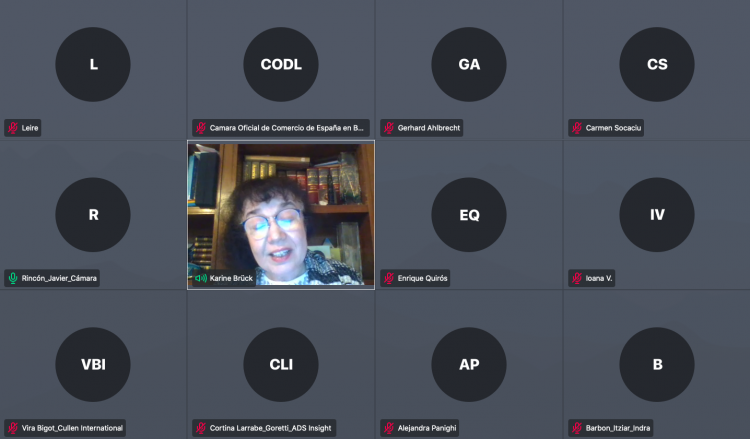Extension of the measures taken by the Walloon Government against Covid-19
On 22 April, the Walloon Government presented additional measures to address the consequences of the health crisis in the region. Main measures taken:
Economy / Employment
285 million in addition to the 233 million euros already allocated in March to support the economy, businesses and the self-employed workers:
Extension of the categories for the fixed allowance of Sectors concerned: mechanics, artistic and entertainment businesses, gyms, horse-riding centres, cinemas, real estate agencies.
Introduction of a second fixed allowance of 2,500 euros for self-employed workers/businesses that have only been able to operate partially during the containment period and have benefited from the right of transition.
Creation of the transitional loan for self-employed workers who need cash to get through the transition. Loans of a maximum amount of 45,000 euros at a favourable interest rate and for a maximum period of 5 years. This loan will be financed in two thirds by the banks and in one third by the public entity SOWALFIN. This last one will guarantee 75% of the reimbursement. Attention! The repayment loan cannot be cumulated with the overall compensation.
In total, the Government estimates that between 110 and 115,000 self-employed persons/enterprises will benefit from this aid.
Health/social measures
1 million for the purchase of food for entities active in food aid.
Increased support for housing infrastructure (in addition to that already granted in March) to help them cope with the additional costs related to the crisis: an additional 250 euros for residents in mental health centres and housing infrastructures for people with disabilities and an additional 400 euros for each bed authorised in the MR-MRS.
Hiring of 140 psychologists who will provide support and accompaniment to the residents and care staff of these reception centres.
Assistance for the accompaniment of disabled people confined in their homes
5 million euros reinforcement for the financing of the Walloon CPAS to enable them to meet new needs and new target groups.
Financial support for the 88 family and elderly care facilities and the 6,500 workers in this sector: 80% compensation for the loss of co-payments (for the covid lost hours) provided that the workers for whom the hours are declared are not unemployed.
Overall compensatory aid of 5,000 euros to the 124 companies approved as Social Economy Initiatives, to the Structures for Supporting Self-Creation of Employment (SAACE), to the Advisory Agencies on the Social Economy (ACES).
Housing
Loans at 0% interest granted by the Société Wallonne de Crédit Social for tenants who have difficulties paying their rent. Maximum term of 6 months, repayable in 36 months.
Kot: possibility for students to terminate the student rental contract early.
Authorisation to extend the current lease for those who cannot move.
Energy
Gas/electricity: aid of 100 euros (electricity) and 75 euros (gas) for people who have a budgeted counter (aid in the form of a deduction on the regularisation bill). This measure affects some 100,000 Walloon households.
Water
For citizens with payment difficulties:
Prohibition of any suspension of water supply and limitation of water flow for a period of 60 days from 1st April 2020.
Reinforcement of the aid granted by the Public Social Assistance Centres (CPAS) to people in a precarious situation with an exceptional additional allocation of 500,000 euros to the Water Social Fund.
For the self-employed, SMEs and companies:
With a simple request, a deferral of payment of invoices or a deferral of payment will be granted.
Revision of the quarterly advances to take account of the decline in activity.
Extension of traditional deadlines.
Speeding up payments by public water companies to subcontractors and suppliers
Staggered payment of water tax
Research
25 million to finance research projects carried out by Walloon companies in the fight against the coronavirus.
Non-commercial sector
Securement of grants to associations that can prove that the suspension of their activities is related to the Covid-19 crisis. This measure is intended to maintain employment in the association sector and ensure the viability of these actors who meet the essential needs of our society before, during and after the crisis.
Source: Wallonie.be




